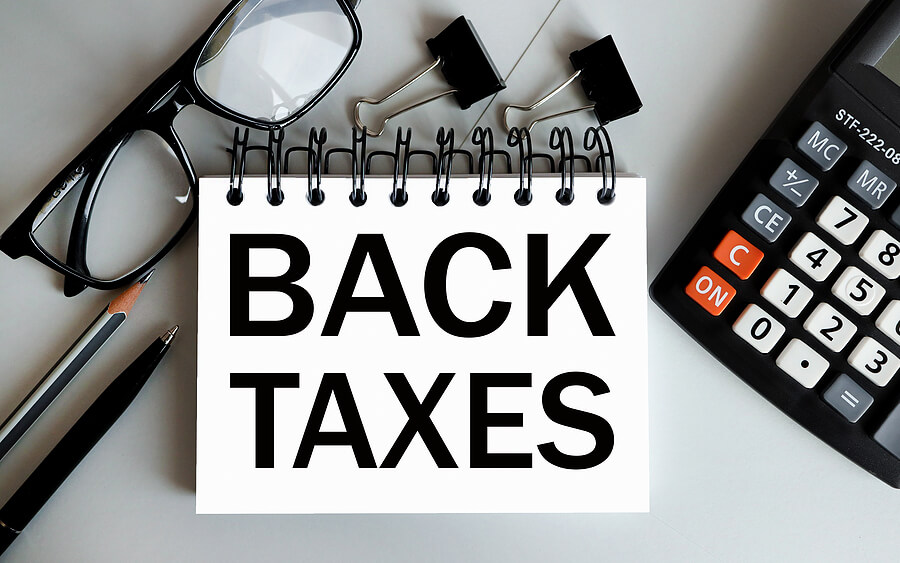If you’re filing taxes late this year, you may be wondering if there’s still time to get your paperwork in while remaining under the radar. You may also be wondering what the regulations are regarding getting current if you’re several years behind on taxes. The truth is that taxpayers have a surprising number of options for filing taxes late if they’re willing to comply with the IRS.
Is it ever too late to file taxes? Take a look at what you need to know.
What Happens If You File Taxes Late?
Will you be stuck with a penalty for late taxes if you file your taxes after this year’s tax deadline? All taxes filed past the tax deadline without an extension in place are considered late. There’s no standard answer for what happens when you file taxes late because the outcome will depend on how long you’ve gone without filing taxes, how much you owe in late taxes, and your ability to pay what you owe to the IRS.
The simplest answer is that the IRS will call on you to file your taxes. If you fail to do this, you face a penalty for filing taxes late; fees, interest, and liens are not far behind. If you really let the situation get out of control, you could be facing charges for tax evasion. Luckily, the IRS is pretty reasonable about helping you to get caught up without much stress as long as you’re willing to take the actions needed.
First, it’s essential to know that the IRS won’t just forget about unfiled and unpaid taxes. While you may think that the IRS hasn’t noticed because you made it through the end of tax season without getting any notices, there’s a good chance that a letter is on its way. The IRS doesn’t just rely on the information you report on your tax returns to determine how much you owe; it uses a sophisticated system that cross-references payroll records and tax returns to calculate how much every taxpayer made during any given year. While you may have skipped filing a return, the IRS still knows if you’ve earned income based on this information.
If you don’t file taxes, the IRS will probably file on your behalf after you’ve ignored notices. There’s no benefit to allowing this to happen because the IRS will file on your behalf without giving you all the tax credits and rebates you may be entitled to receive. That means you’ll likely end up owing more than you should. You’ll also begin accruing failure-to-file penalties the moment your taxes are late. This totals five percent of what you owe the IRS for each month your return is late, and up to a maximum of 25 percent of your total bill for the first 60 days past the deadline. If you file your return 60 days late, the minimum penalty is the smaller of $135 or 100 percent of the unpaid tax.
Are you concerned that you can’t file your taxes because you have no way to pay what you owe? The five percent penalty for filing taxes late is actually much more expensive than the late payment penalty of .05 percent. It pays to file even if you cannot cover your full bill. Only by filing your taxes can you access the many tax relief options provided to you by the IRS. Once you’re approved for relief, the penalties stop adding up as long as you stay in compliance with the terms of your relief agreement.
While the IRS has a reputation for being persistent, taxpayers who get up to date with late taxes can take advantage of a wide variety of relief options like an Installment Agreement (IA), Offer In Compromise (OIC), or Currently Not Collectible status (CNC). All of these options will freeze your payments, reduce your total bill, or provide you with years to pay it off in smaller chunks. Almost every taxpayer will qualify for at least one relief option, but the IRS won’t consider your application for relief unless you’ve filed all past due returns.
How Late Can You File Taxes?
It’s never too late to file taxes. Again, the only mistake is never filing taxes. The IRS doesn’t stop adding on fees and penalties just because you’re ignoring letters. If it determines that you owe money, it will activate liens and wage garnishments that seize paychecks, assets, and bank accounts until your bill is satisfied. While there is generally a 10-year statute of limitations on tax collection, the IRS can reclaim what you owe through liens and wage garnishments even if you’re trying to “wait out” the problem. By avoiding taxes, you’re racking up fees and interest that will actually prolong your liens and garnishments because you’re owing much more than your original tax bill.
Generally, filing your taxes within 60 days of the due date is the best option for being late because you’re capped at paying a maximum of 25 percent of your total tax bill. Beyond that, the IRS can tack on fines that equal 100 percent of your bill. However, filing today is the best option.
If you’d like to file your taxes late without incurring failure-to-file penalties, you can apply for an extension before the tax deadline. Depending on your situation, an extension can give you between 30 days and six months to file your taxes beyond the due date without being penalized for failure to file. However, you still have to pay at least 90 percent of your balance by tax day unless you want to incur late-payment penalties. While extensions give you more time to prepare your return, they don’t provide much of a buffer for paying your anticipated tax bill.
How to File Late Taxes
If you already have all of the information you need to file your late return, you can go ahead and file it the regular way. Just keep in mind that you need to have any W-2 or 1099 forms for the outstanding years in order to accurately report your income.
If you’re missing documentation, you can use Form 4506-T: Request for Transcript of Tax Return from the IRS. In many cases, having your late taxes prepared by a tax professional is a good way to ensure that you’re handling the process properly. A tax expert can also fill you in on the process for applying for relief or installment payments if you have tax bills you can’t manage with lump payments.
What You Need to Know About Filing Your Taxes Late
If you owe taxes, you can only benefit from getting them filed now. You’re still entitled to your refund even if you missed the tax deadline. However, the IRS cuts you off from your refund after three years. That means you’ll be paying interest on owed taxes without getting the refund you’re owed. Owing taxes can also cause the IRS to hold back any future refunds.
Get Help With Filing Your Taxes Late
A late tax return is always better than no tax return. When you come to Tax Group Center for help with filing your taxes late, we’ll help you catch up with late tax returns. If you owe money to the IRS or state, we’ll walk you through the process of getting debt relief to reduce your debt, freeze your debt, or space out payments. With 30 years of dealing with the IRS on behalf of our clients to our name, the Tax Group Center team is ready to help you get your late tax return handled the right way. Contact us today!






